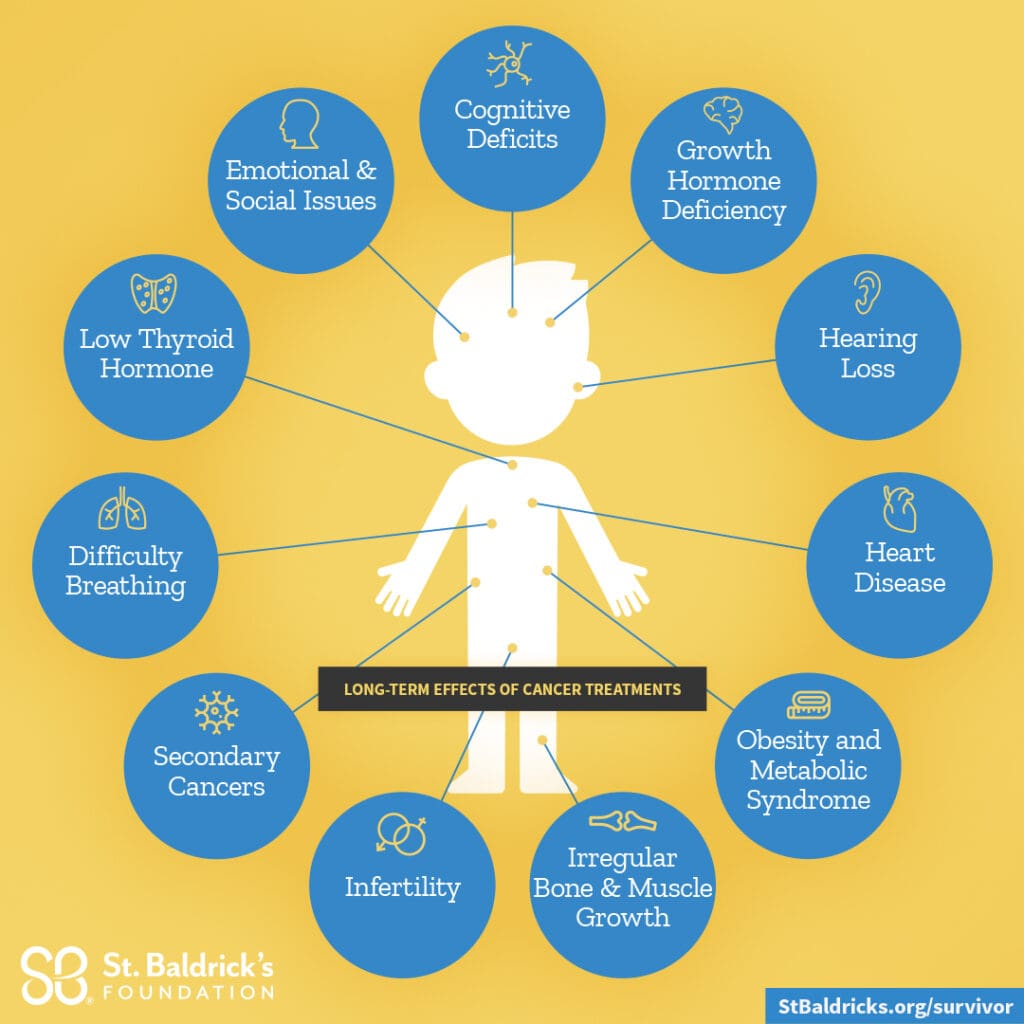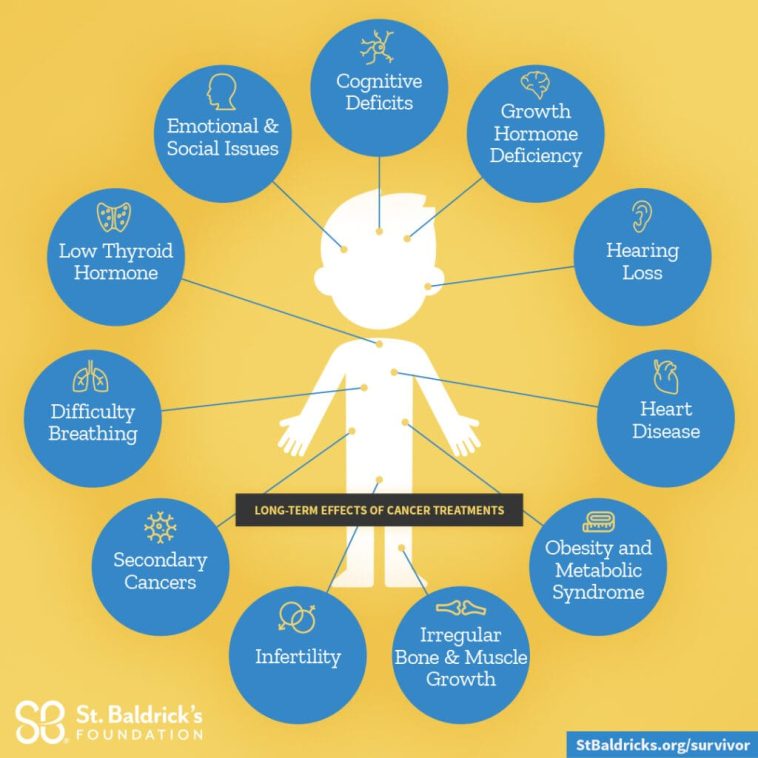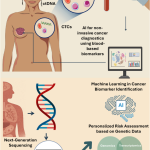
Fighting Cancer with Faith and Writing: A Personal Journey Through Turbulent Times
The story of one cancer survivor highlights the power of two passions in overcoming life’s tricky parts and tangled issues. In a journey marked by overwhelming challenges, the inspiring narrative demonstrates how writing and faith can offer much-needed refuge amid the twists and turns of cancer treatment, isolation during the COVID era, and unexpected health changes. This opinion editorial dives into the experience of a long-time cancer battler whose passion for writing transformed a difficult diagnosis into an ongoing narrative of hope, healing, and resilience.
Writing as Therapy: Turning Pain into Purpose
For many facing serious illnesses, the idea of writing about personal turmoil may seem nerve-racking, yet it can be an empowering way to cope. The survivor in our story found that putting pen to paper—whether typing on a computer or scribbling on a notepad—became a critical, life-affirming activity. Writing not only provided an outlet for stress and grief but also brought clarity in times where emotions ran high and life’s confusing bits felt overwhelming.
In her journey that began with a devastating diagnosis in 2010, writing became more than a hobby; it turned into a form of self-help therapy. Here are some ways that writing helped her:
- Emotional Release: Putting down her thoughts allowed her to unload the emotional baggage that accompanied each treatment session.
- Sense of Purpose: The regular act of sharing her story on a trusted healthcare platform renewed her purpose, even when external aspects of life seemed grim.
- Building a Legacy: Over the years, accumulating 245 articles provided not only a record of her struggle but also a foundation for a published book, an effort that turned personal pain into inspiring literature.
How Virtual Gatherings Brightened the Dark Days of Isolation
When the COVID-19 pandemic hit, it brought with it a unique type of loneliness. For someone used to a busy social life, the sudden isolation was intimidating and off-putting. The survivor, who had always thrived on in-person interactions—from regular coffee dates with friends to casual outings with her beloved dog—found herself missing the daily interaction that made life less tense.
Yet, the digital age provided a lifeline in the form of virtual gatherings. Platforms like Zoom allowed not only for office meetings and remote work but also recreated a semblance of community through online church services and writer’s meet-ups. Even in a state that felt loaded with issues, these virtual congregations helped her get around the tricky parts of isolation, offering a community that understood and validated her emotional experience. Notably:
- Online Church Services: Regular digital gatherings kept her rooted in faith, offering spiritual nourishment during the toughest of times.
- Cherished Writer Groups: Sharing her experiences with fellow CURE writers helped her steer through the tangled issues of cancer treatment while exchanging ideas and offering heartfelt support.
- Maintaining Social Connections: Despite living alone, weekly virtual meetings allowed her to make meaningful connections, resulting in an unexpected community of empathetic friends and peers.
Balancing Career Transitions and Personal Health Crisis
The survivor’s journey was not only fraught with physical health challenges but also with career transitions that many might find overwhelming. After being forced to quit cherished jobs—one counseling children and another teaching at the college level—a 30-year career in adjunct teaching came to an abrupt halt. This sudden change unleashed a wave of depression and confusion, prompting her to reassess her identity and the role of her passions in her life.
In the midst of such a nerve-racking phase, she asked her oncologist for advice on how to channel her need to communicate and share her message. The suggestion was to write for a trusted platform like CURE. That decision was a turning point. It provided her with a structured way to document her journey, turning her chaotic emotions into finely honed personal essays filled with subtle details and personal insights. Through her writing, she eventually discovered that the creative act was not only a way of paying tribute to her past career but also an innovative form of self-healing.
Overcoming the Overwhelming Loss of Familiar Abilities
As with many stories of serious illness, the survivor’s experience was not only about fighting cancer but also about coping with additional health issues. One particularly challenging aspect was the gradual increase in hearing loss—a confusing bit of her overall condition that added another layer of complexity to her struggle. Previously hard of hearing, her condition escalated to the point where she became effectively deaf, a daunting and nerve-wracking development.
This significant change in her ability to connect with the world around her brought about a sense of isolation, even when surrounded by online support communities. Still, her response was both brave and ingenious. She embraced new strategies to compensate for her loss, such as relying more on written communication and finding unique ways to connect with her community. For instance, the role of her service dogs became even more critical: one departed, leaving her with a profound sense of loss, yet soon another furry companion joined her, ensuring she continued to feel supported on her daily paths through life.
Faith as the Rock in a Sea of Challenges
When confronted with ongoing hardships, lean on something that not only soothes your spirit but also anchors your identity. For the survivor, her unwavering faith was fundamental. Part of a welcoming and affirming church, she often found that her spiritual commitments were super important in providing inner strength when everything around her felt full of problems. The support from her congregation was not limited to the Sunday services; it extended to after-service gatherings, realized through both physical meet-ups (when possible) and virtual rendezvous.
Her experiences underscore the importance of faith in managing your way through not only cancer but also life’s many nerve-wracking episodes. The church’s encouragement to write devotionals during the challenging period of COVID-19 was a crucial reminder that even when the world feels on edge, creative outlets can serve as an important testament to resilience and hope.
Turning Adversity into Art: The Journey of a Published Book
In the face of relentless adversity, the survivor’s ambition did not waver. She turned to writing books as a crucial path to preserve her life’s narrative. Initially, she published three brief books in the earlier years of her battle, but soon an inner drive urged her to create something more comprehensive—a 300-page work that detailed her life journey, including her experiences with the deaf and hard-of-hearing community.
This monumental effort did more than provide personal solace; it became a beacon of hope for others confronting similar challenges. The book not only cataloged the various treatments, emotional highs, and lows of her cancer journey but also paid tribute to the courage found in pursuing one’s passions amid life’s nerve-racking twists and turns. It stands as a testament that no matter how tangled the issues become, there is always an opportunity to reclaim your narrative through art and storytelling.
Lessons Learned: Embracing Passion and Community Support
There are several key lessons drawn from this patient’s experience that extend far beyond the realm of cancer treatment. They remind us that our passions can be a counterbalance to life’s grim moments and that every setback has the potential to lead to unexpected blessings. Juggling the difficult treatment regimens, personal losses, and painful treatment side effects required her to find creative ways to manage her emotional health. Her journey teaches us that even in the most intimidating situations, cultivating our interests—whether that be writing, art, or music—can be incredibly beneficial.
Some of the lessons that resonate most include:
- Embrace Your Passions: Don’t underestimate the power of creative expression. Even on days when the future seems loaded with issues, engaging in an activity you love can provide a sense of direction and relief.
- Build a Support Network: Whether face-to-face or via digital platforms, connection with others is essential. Sharing your experiences, even the confusing bits and complicated pieces, fosters understanding and empathy across communities.
- Accept the Inevitable Changes: Life is full of unexpected twists and turns. Adapting to new realities—like changes in physical abilities—requires patience and the acceptance that some parts of life will change, but the core of who you are can remain intact.
Writing and Faith: A Dual Approach to Confronting Health Challenges
The intertwining of faith and writing created a powerful dual approach to coping with cancer. While writing offered a channel to explore the fine points of her journey and document the little details of her everyday struggles, faith provided a grounding sense of hope and community connection, even when her personal world was evolving in unexpected ways.
This dual strategy is particularly important for anyone navigating the maze of long-term health challenges. Faith can offer perspective and meaning, while writing acts as a tangible record of emotional and physical progress. Together, they create a balanced way to face an intimidating future with humility and perseverance. When both are used in tandem, they can transform daunting medical treatments into manageable life chapters.
Practical Takeaways for Others Facing Similar Health Battles
While the survivor’s experience is deeply personal and unique, there are many practical takeaways that others can apply to their own battles with illness. Here are some actionable strategies to consider:
| Strategy | How It Helps |
|---|---|
| Journaling Daily Thoughts | Releases pent-up emotions and clarifies confusing bits of your experience. |
| Joining Virtual Support Groups | Maintains social ties and offers emotional reinforcement when isolation feels overwhelming. |
| Creating a Personal Project | Provides a goal-oriented activity that can shift focus from despair to creative achievement. |
| Engaging with a Faith Community | Fosters a sense of belonging and spiritual support during the sorrowful and intimidating moments. |
By taking the time to explore creative methods of expression and leaning into supportive communities—whether in person or via the web—individuals can find a way to make sense of even the most nerve-racking overall experiences. This model of using passion as both escapism and a tool for healing is one that many cancer survivors have embraced successfully.
Community as a Catalyst for Resilience
Another pivotal aspect of her journey was the community that emerged among fellow writers and survivors. The digital age, with its video conferencing tools and social media platforms, offered more than just a replacement for physical gatherings. It provided an entirely new space for collaboration, empathy, and shared strength.
A regular Zoom session with fellow writers from the CURE network exemplified how virtual communities can transcend geographical distances and bring together people fighting similar battles. In these meetings, participants exchanged stories, discussed coping strategies, and celebrated small victories. It is here that one learns firsthand just how much a cohesive support system can accelerate recovery—even if it is not a replacement for physical touch.
This approach to community-based healing has several benefits, including:
- Rapid Feedback: Immediate responses from people who understand your challenges provide critical reassurance during treatment periods.
- Shared Ideas: The collective pool of knowledge means that tips, whether for managing treatment side effects or adjusting to lifestyle changes, are constantly evolving.
- Emotional Encouragement: The simple act of being listened to can re-energize someone’s outlook and strengthen their resilience in the face of daunting challenges.
Transforming Life’s Tangled Pieces into an Inspiring Narrative
Every patient’s journey is filled with its own sets of small distinctions and little twists, and overcoming these subtle parts requires both patience and continual self-acceptance. Our writer’s narrative is proof that even when life seems loaded with issues—whether through abrupt career changes, shifts in personal identity brought on by illness, or the loss of senses that we once took for granted—every moment has the potential to contribute to a larger, meaningful story.
By converting each painful experience into a chapter of her published work, she not only managed to document the profound lessons learned but also reached out to countless others struggling to find meaning amid their own health crises. This conversion of suffering into story illustrates that even the nerve-wracking realities of modern health challenges can be shaped into something both beautiful and enlightening.
Steering Through the Labyrinth of Modern Healthcare
In the context of modern cancer treatment, there are many delicate, subtle details that patients must figure a path through. From understanding treatment options—ranging from chemotherapy to newly developed therapies—to learning about how COVID-19 can exacerbate physical ailments, the landscape is filled with complicated pieces that are best approached with a combination of factual knowledge and personal insight.
The experience detailed here sheds light on the importance of having a proactive approach. Some useful tips include:
- Educate Yourself: Constant learning about your treatment and its potential side effects helps reduce the feeling of being overwhelmed by the unknown.
- Ask Questions: Staying in touch with your healthcare providers and discussing every aspect of your progress can clarify many of the confusing bits along the way.
- Find Your Personal Support Team: Align yourself with both medical professionals and trusted members of your community who understand your unique needs.
Maintaining a delicate balance between factual information and the wisdom drawn from personal experiences is key. With each doctor’s appointment and every new treatment regimen, there lies an opportunity to rewrite your story—a story that is not defined solely by a diagnosis but by a resilient human spirit that continually strives to find its way amidst the nerve-racking challenges of modern life.
Celebrating the Triumphs Alongside the Trials
In all its nerve-wracking complexity, the journey through cancer is one of both trials and triumphs. It is important to recognize and celebrate even the smallest victories. The survivor’s story is filled with moments of joy, whether it is the simple pleasure of a coffee date with her dog or the profound satisfaction of publishing a 300-page book that she labored over during endless hours of recovery and reflection.
These moments represent the key, must-have instances of clarity and strength that can transform a seemingly overwhelming journey into one celebrated by personal milestones instead of measured solely by hardships. Celebrating these small successes can help remind anyone going through similar challenges that every day brings a new opportunity to push forward, to reconnect with life, and to embrace the art of storytelling—even if that story is written one delicate, painful word at a time.
Looking Ahead: The Continuing Journey of Resilience and Innovation
While the period discussed in this narrative spans 15 long, transformative years, it is only one chapter in an ongoing life story. With each new treatment, technological advancement in healthcare, and emerging form of digital support, the next phase of the journey always promises to bring further opportunities for growth and healing.
There is a bright future ahead, where the fusion of traditional healing methods, modern medical treatment, unwavering faith, and the creative power of writing can coexist. This balanced approach encourages patients not only to survive but to thrive despite the tricky parts and confusing bits that life inevitably presents.
As more people share their personal experiences through digital platforms, an ever-growing network of support continues to expand. This network is built on the understanding that while no one is immune to the nerve-racking challenges of modern healthcare, no one needs to face them alone. The survivor’s story reminds us that with every small victory and each shared experience, someone else finds the strength to keep fighting—a cycle of courage that is both contagious and uplifting.
In Conclusion: The Enduring Power of Passion and Community
The journey through cancer, marked by career upheavals, health setbacks, and the relentless pressures of a global pandemic, can often seem overwhelming. Yet, the combined forces of faith and writing provided our writer with a way to not only cope but to document and share a journey that is filled with both pain and profound purpose.
Her story demonstrates that while the twists and turns of life may sometimes be full of problems and intimidating challenges, they can also be transformed into narratives of strength, community support, and creative expression. Through every moment of isolation, every nerve-racking treatment, and every loss of a familiar piece of oneself, there is always a spark—a reminder that passion and community are super important pillars in the journey of life.
For anyone facing similar challenges, remember that the path through health adversities is not one you have to walk by yourself. Whether you choose to express your pain through writing or seek comfort in the arms of a supportive faith community, what matters is that you keep moving forward, one inspiring chapter at a time. The fusion of creative expression and spiritual grounding can transform the darkest chapters into powerful stories of resilience, urging others to get into the fight with renewed hope and determination.
This editorial reflects one personal experience and a perspective within the broader narrative of surviving and thriving amidst severe health challenges. For anyone seeking medical advice or individual support, it is critical to consult trusted healthcare professionals and choose a support network that best fits your unique needs.
In sharing such personal journeys, we not only honor the resilience of the human spirit but also create a repository of experiences that can serve as guideposts for anyone navigating the tangled issues of cancer and chronic illness. Let this be a call to find your own passions—be it writing, art, music, or simple acts of kindness—and share them generously, so that together we can make our way through even the most nerve-racking chapters of life.
Ultimately, the message is clear: when life throws its intimidating challenges your way, lean into your passions, build a supportive community, and remember that every story, no matter how full of issues or confusing bits, has the potential to inspire and uplift others on their journey to healing.
Originally Post From https://www.curetoday.com/view/what-helped-me-get-through-15-years-of-cancer
Read more about this topic at
How to Be More Resilient: 9 Keys to Persevering Faith
How faith builds your resilience skills


